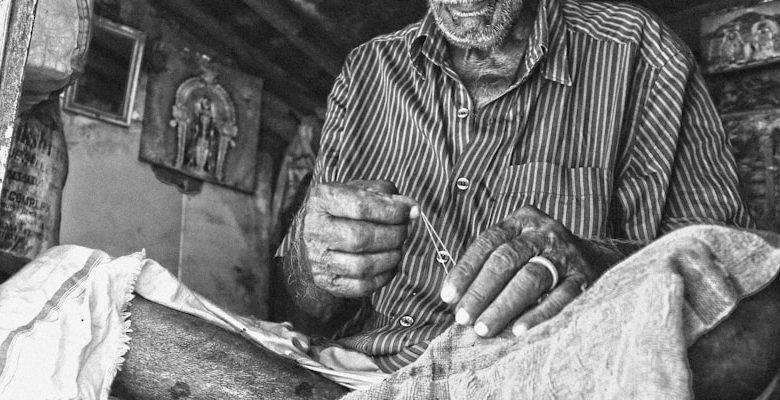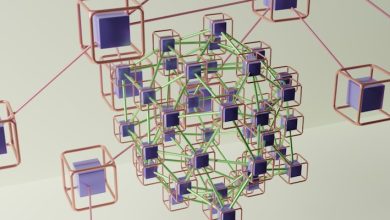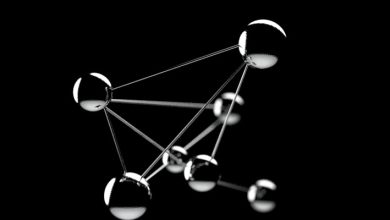Maker (MKR): The Governance Token for DeFi

- Understanding Maker (MKR) and its role in DeFi governance
- The decentralized governance model of Maker (MKR)
- How Maker (MKR) holders participate in decision-making for the DeFi ecosystem
- The importance of Maker (MKR) as a governance token in the world of decentralized finance
- Exploring the voting system of Maker (MKR) and its impact on DeFi projects
- Challenges and opportunities for Maker (MKR) in the evolving DeFi landscape
Understanding Maker (MKR) and its role in DeFi governance
Maker (MKR) plays a crucial role in the governance of decentralized finance (DeFi) protocols. MKR holders have the power to vote on proposals that impact the MakerDAO ecosystem, such as changes to collateral types, stability fees, and other protocol parameters. This governance structure ensures that decisions are made in a decentralized and transparent manner, with the goal of maintaining the stability and integrity of the MakerDAO platform.
MKR is a utility token that is used to pay transaction fees on the MakerDAO platform. Additionally, MKR holders are responsible for managing the Dai stablecoin’s peg to the US dollar. If the price of Dai deviates from its target, MKR holders can vote to mint or burn MKR tokens in order to stabilize the price.
Overall, MKR is an essential component of the DeFi ecosystem, providing holders with the ability to participate in governance decisions that impact the future of the MakerDAO platform. By holding MKR tokens, users can actively contribute to the development and evolution of DeFi protocols, ensuring that they remain decentralized, transparent, and secure.
The decentralized governance model of Maker (MKR)
Maker operates on a decentralized governance model, which means that decisions regarding the protocol and ecosystem are made by MKR token holders. This system gives users the power to propose and vote on changes, ensuring that the platform remains transparent and community-driven.
Through the governance process, MKR holders can vote on various proposals, such as changes to collateral types, stability fees, and other key parameters. This democratic approach allows for continuous improvement and adaptation to the evolving needs of the DeFi space.
One of the key features of Maker’s governance model is the use of smart contracts to automate voting and execution of decisions. This ensures that the process is secure, transparent, and resistant to manipulation. Additionally, the decentralized nature of the governance system helps to prevent any single entity from gaining too much control over the protocol.
Overall, Maker’s decentralized governance model is a key aspect of its success in the DeFi space. By giving users a voice in the decision-making process, the protocol can stay agile and responsive to changing market conditions. This community-driven approach sets Maker apart as a leader in the decentralized finance ecosystem.
How Maker (MKR) holders participate in decision-making for the DeFi ecosystem
Maker (MKR) holders play a crucial role in the decision-making process within the DeFi ecosystem. They have the power to vote on various proposals that impact the future of the platform. This voting process is a key aspect of the decentralized governance model that Maker utilizes to ensure that the community has a say in how the protocol evolves over time.
There are several ways in which MKR holders can participate in decision-making. One of the main avenues is through the Maker Improvement Proposals (MIPs) framework. MIPs are formalized documents that outline specific changes or additions to the Maker protocol. MKR holders can review these proposals and vote on whether they should be implemented. Additionally, MKR holders can also participate in on-chain polls, which are used to gauge community sentiment on various issues.
By actively participating in the governance process, MKR holders can help shape the future of the DeFi ecosystem. It is important for holders to stay informed about upcoming proposals and to cast their votes thoughtfully. Ultimately, the decentralized nature of Maker’s governance system ensures that decisions are made collectively by the community, rather than by a centralized authority.
The importance of Maker (MKR) as a governance token in the world of decentralized finance
Maker (MKR) plays a crucial role as a governance token in the decentralized finance (DeFi) ecosystem. It enables holders to participate in the decision-making process regarding the development and management of the Maker Protocol, which underpins various DeFi applications.
By holding MKR tokens, individuals can vote on proposals that impact the protocol, such as changes to collateral types, stability fees, and other parameters. This decentralized governance model ensures that the community has a say in how the protocol evolves over time, promoting transparency and inclusivity.
Furthermore, MKR holders are responsible for maintaining the stability of the Dai stablecoin, which is pegged to the US dollar. In times of market volatility or unexpected events, MKR holders can vote to mint new MKR tokens or adjust parameters to stabilize the Dai peg.
Overall, Maker (MKR) serves as a cornerstone of DeFi governance, empowering users to shape the future of decentralized finance. Its importance in the ecosystem cannot be overstated, as it provides a mechanism for collective decision-making and risk management that is essential for the sustainability and growth of DeFi platforms.
Exploring the voting system of Maker (MKR) and its impact on DeFi projects
The voting system of Maker (MKR) plays a crucial role in the governance of decentralized finance (DeFi) projects. MKR holders have the power to vote on proposals that impact the Maker protocol, such as changes to stability fees or collateral types. Through this decentralized decision-making process, MKR token holders collectively shape the future of the DeFi ecosystem.
By participating in the voting system, MKR holders can influence the direction of DeFi projects and ensure that decisions align with the interests of the community. This level of governance empowers users to have a say in the development and evolution of the protocols they rely on for financial services.
The impact of the voting system on DeFi projects is significant, as it promotes transparency, accountability, and decentralization. With MKR holders actively participating in governance, decisions are made collectively rather than by a centralized authority. This democratic process helps to build trust among users and strengthens the overall integrity of the DeFi ecosystem.
Challenges and opportunities for Maker (MKR) in the evolving DeFi landscape
As Maker (MKR) continues to establish itself as a prominent governance token in the decentralized finance (DeFi) landscape, it faces both challenges and opportunities. One of the main challenges for Maker is the increasing competition in the DeFi space. With new projects and tokens being launched regularly, Maker must work to differentiate itself and maintain its position as a leader in the industry.
On the other hand, Maker also has numerous opportunities to capitalize on the growing popularity of DeFi. The increasing adoption of decentralized finance solutions presents a unique chance for Maker to expand its reach and attract more users. By leveraging its governance token, Maker can actively participate in shaping the future of DeFi and establishing itself as a key player in the ecosystem.
Additionally, Maker can benefit from the rising interest in stablecoins, which are essential for many DeFi applications. As the creator of the DAI stablecoin, Maker is well-positioned to capitalize on the demand for stable digital assets. By continuing to innovate and improve its offerings, Maker can solidify its position as a leading provider of stablecoins in the DeFi space.



